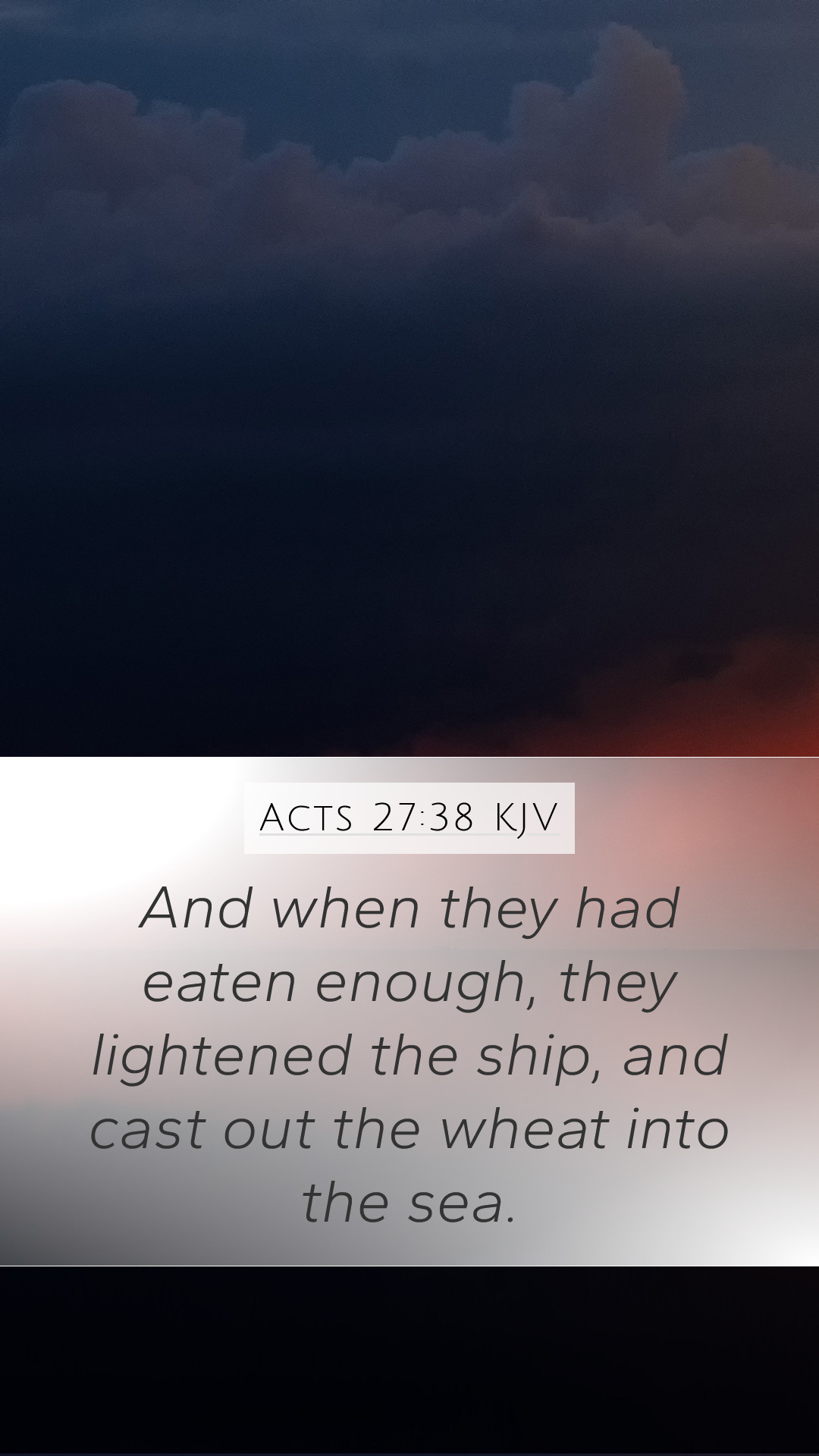Understanding Acts 27:38
Acts 27:38 states, "When they had eaten enough, they lightened the ship, throwing out the wheat into the sea." This verse is part of a larger narrative concerning the Apostle Paul's journey to Rome, during which he faced a violent storm and the eventual wreck of the ship carrying him and other prisoners.
Scriptural Context and Background
The journey described in Acts 27 occurs during a perilous sea voyage, highlighting the struggles faced by Paul and his companions. Understanding this verse requires us to appreciate the historical and cultural circumstances of maritime travel in the first century.
- Historical Context: The Mediterranean Sea was known for its sudden storms. The perilous journey underscores the vulnerability of ancient sailors.
- Apostolic Journey: Paul is being transported as a prisoner to Rome, highlighting his unwavering faith amid adversity.
Commentary Insights
Drawing on the insights of Matthew Henry, Albert Barnes, and Adam Clarke, we can glean deeper meanings from this verse.
- Matthew Henry's Commentary: Henry emphasizes the practical decision made by the sailors to lighten the ship. This act illustrates the human instinct to do whatever is necessary for survival. When faced with a crisis, they prioritized their lives over their cargo.
- Albert Barnes' Commentary: Barnes elaborates on the significance of the wheat. It represents valuable cargo that, despite its worth, had to be sacrificed for the greater good—the preservation of life. This act teaches a lesson about the priorities we hold in desperate times.
- Adam Clarke's Commentary: Clarke reflects on the psychological toll of the storm on the sailors and passengers. The act of throwing the wheat overboard was both a physical necessity and a ritualistic gesture of surrendering their desperate situation to God.
Biblical Exegesis
In examining the biblical exegesis of Acts 27:38, we must consider the larger themes at play:
- Divine Providence: Despite the dire circumstances, God's plan for Paul remained intact. This echoes the broader themes of God's sovereignty in trials.
- Trust in God: The sailors' choice to discard their cargo indicates a moment of reckoning—recognizing their limitations and the need for divine help.
Application to Daily Life
Acts 27:38 teaches vital lessons that can be applied in contemporary life:
- Prioritize What Matters: In times of crisis, we often have to make difficult choices. This verse encourages us to evaluate our values and make decisions based on what truly matters.
- Faith Amidst Trials: Just as Paul and the others faced uncertainty, we can learn to maintain faith during our life's storms.
Cross References
This passage can be cross-referenced with:
- Psalm 107:23-30 - God's ability to calm storms.
- Acts 27:34 - Paul's encouragement to his companions.
- Philippians 4:6-7 - Paul's teachings on peace in anxiety.
Conclusion
In summary, Acts 27:38 serves as a powerful reminder of the importance of making sacrifices for survival, recognizing the need for God's intervention, and trusting in His plan when facing adversity. Through careful study and commentary analysis, we find rich insights that deepen our understanding of this scriptural passage.
Further Study and Reflection
For those seeking to delve deeper into the meanings of Bible verses, this passage offers a profound opportunity for reflection. Consider engaging in Bible study groups or utilizing various Bible study resources to explore similar themes within the Scriptures.


